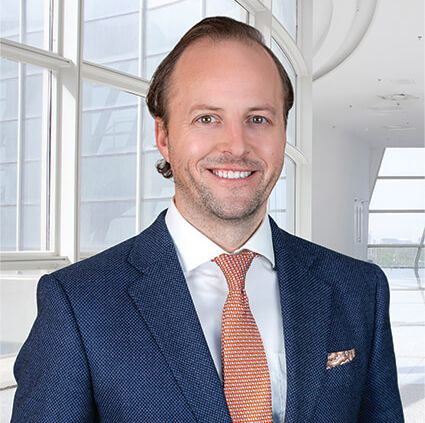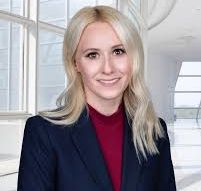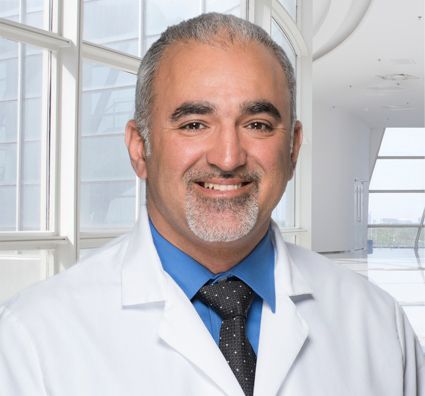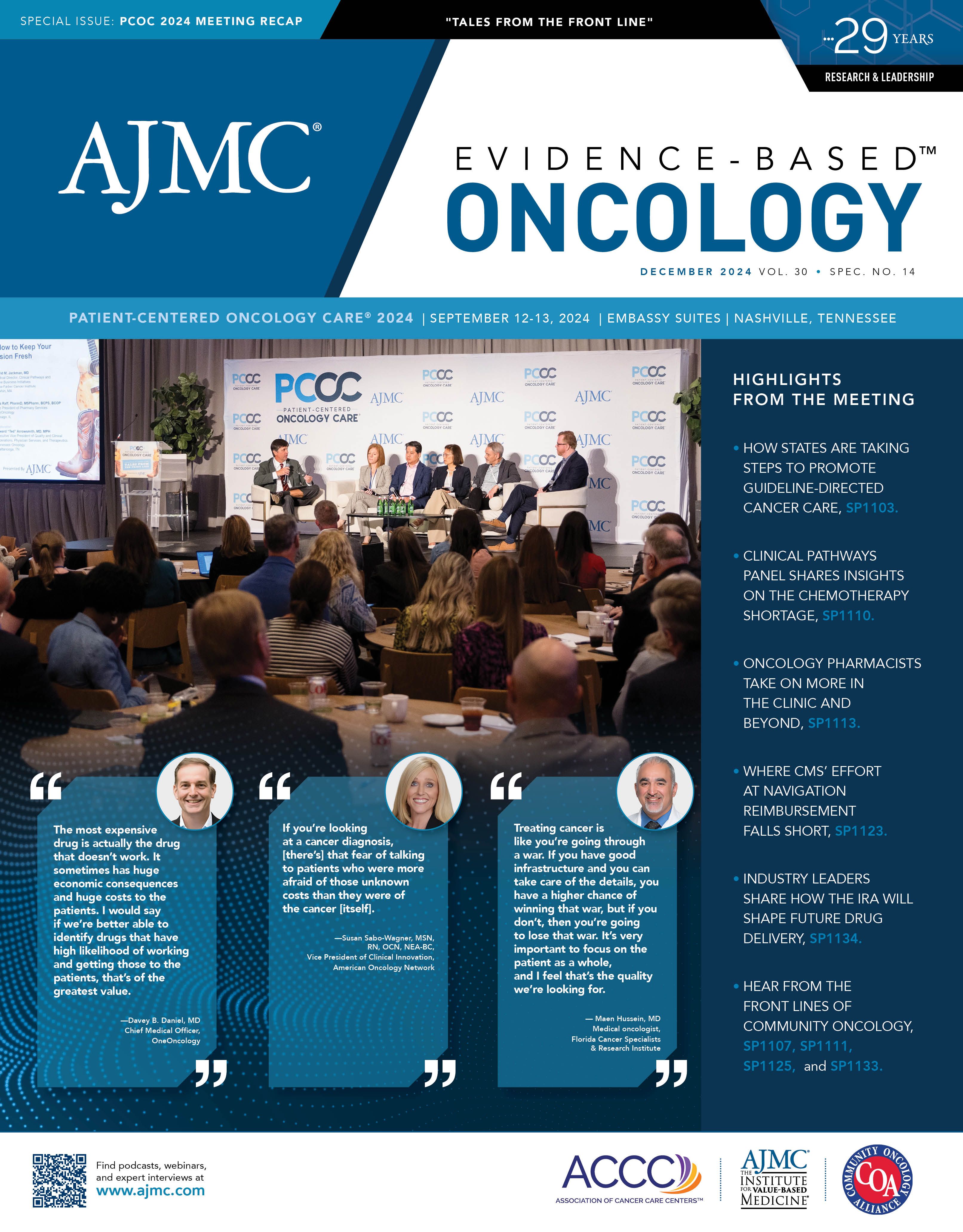- Center on Health Equity & Access
- Clinical
- Health Care Cost
- Health Care Delivery
- Insurance
- Policy
- Technology
- Value-Based Care
Collaborating With Payers Toward a Holistic Model of Care
After a successful run in the Oncology Care Model (OCM), which was the first alternative payment model in Medicare focused on cancer care, leaders with Florida Cancer Specialists & Research Institute (FCS) faced a decision in 2023: Should they move ahead with the successor, the Enhancing Oncology Model (EOM), or double down on the original measures of a 2015 law that Congress passed to encourage value-based care?
Josh Eaves, chief development and strategy officer | Image credit: Florida Cancer Specialists & Research Institute

For FCS, the decision to focus on the Merit-based Incentive Payment System and to collaborate with its payers on a common set of metrics for value-based care came down to the math. As Kiana Mehring, MBA, FCS’ senior director of strategic partnerships, Managed Care, explained, the EOM “only represented around 5% of our Medicare beneficiaries. So how impactful do we feel a program can be when you’re measuring such a small subset of the population?”
Kiana Mehring, MBA, senior director of strategic partnerships, Managed Care | Image credit: Florida Cancer Specialists & Research Institute

Mehring joined moderator Josh Eaves, FCS’ chief development and strategy officer, and Maen Hussein, MD, medical oncologist, at the Patient-Centered Oncology Care (PCOC) conference to discuss the nearly 100-site practice’s journey with value-based care and its current approach to quality measurement, cost control, and the delivery of patient-centered care. Just weeks before PCOC, FCS and the McKesson Corporation had announced a proposed transaction for McKesson to pay $2.49 billion for a 70% ownership stake in FCS’ Core Ventures.1
Maen Hussein, MD, medical oncologist | Image credit: Florida Cancer Specialists & Research Institute

As Mehring and Hussein discussed, the decision to forgo the EOM did not mean FCS was less committed to value-based care. Hussein shared examples of how FCS taking part in the OCM had opened doctors’ eyes both to the impact of the cost of therapy on patients and how other elements affect the cost of care. Following the model forced new ways of thinking about how managing treatments for patients affects the bottom line and improves quality of life, in ways that had a positive effect on outcomes.
For example, prior to the OCM, if a patient called the practice and said they weren’t feeling well, it was easy to simply send that person to the emergency department (ED). “That’s a big cost. Now with the OCM, we were like, ‘Well, bring the patient here. Let’s evaluate them. Maybe we can hydrate them, and [they will be] fine. And that changed the paradigm.”
Instead of a patient spending 12 to 15 hours in the ED to be evaluated and ultimately sent home, Hussein said a clinic could treat a patient in the office for a fraction of that time and cost.
He’s also seen examples of older adults with cancer working with their physicians to manage treatment visits around vacations or pickleball league schedules, all of which are positive for the patients’ long-term health. “It’s OK to skip a dose and let them go on the cruise. It’s a form of therapy, basically, because it feeds endorphins and helps the immune system.”
“We understand we can make cancer [similar to] a chronic disease,” Hussein explained. “We don’t have to cure it, but if we can balance the chronicity of this disease and maintain quality [of life], that’s the goal I want to achieve with my patient.”
A Holistic Model of Care
As Eaves stated, creating a patient-centered approach to care requires looking at how it is delivered from all angles, including what matters to the patient. Now in its 40th year, Eaves said FCS served 317,000 patients in 2023, while providing many different types of encounters for physicians as they “seek to do what’s right for the patient.”
In looking at the question of value, if one takes the classic definition of quality divided by costs, Eaves said it’s important to first understand what a practice considers in its total cost of care. He asked Mehring to describe FCS’ conversations with payers as the practice sought to reduce its total cost of care. Payers, she said, wanted predictability, and they wanted to lower the total cost of care. To do this, FCS had its own requests.
“If we’re going to do this, we really need you to be transparent with your data and provide the data for us to look at the market in aggregate,” Mehring said FCS told its payers. Practice leaders needed to look at data by patient acuity, risk adjustment, and the proper level of care utilization—not rewarding either too much or too little care, because sometimes the ED is necessary.
Drug costs represent one major area of potential savings as Mehring said they keep rising. But what’s important to understand is that simple J code comparisons across sites of care don’t tell the whole story. Community oncology sites don’t have facility fees, and Mehring takes time to explain to payers how these savings add up.
“The second area we see quite frequently, and I’m sure you’re all seeing this as a major driver of [spending] as well, is acute care utilization,” she said. “This is the one that we can really move the needle on. It’s not going to have any impact to the bottom line for community oncology, and it’s really beneficial for our patient population.”
FCS’ drug development units and precision medicine capabilities offer insights into which drugs work for which patients, which help physicians avoid giving therapies that won’t work.
Reporting Brings Change for Patients
Hussein said analyzing processes helps physicians improve in their quality and cost metrics. He saw firsthand during the OCM how quality reporting changed doctors’ behavior. “We’re very competitive. We like to be the best,” he said, referring to scorecards that were used to allow physicians to compare themselves to their peers on things such as staging, minimizing hospital admissions, and other factors.
He still recalls during 2016, during the first year in the OCM, when about 20 physicians did not complete quality reporting requirements needed for bonus payments. When the practice received its shared savings, those physicians didn’t receive part of the bonus. “And I can tell you, the following year, those 20 doctors were the first ones to check their email and ask about every piece” of the reporting requirements.
“Sometimes you have to do that to motivate people,” Hussein said. “We all care about our patients, but you know, we’re human, too.”
“Going Through a War”
Thanks to clinical guidelines and precision medicine approaches, Hussein has witnessed encouraging changes during the 18 years he has been in practice. “I remember 18 years ago when I walked through the waiting room, maybe 50%, 60% of the patients look like cancer patients, like no hair,” he said. “Now when I walk through our waiting room, maybe 10% look like cancer patients. Everybody else looks like if you saw them in the street, you cannot even tell they have cancer. So, I think that’s something we are proud of achieving.”
The guidelines, however, are tailored to each patient. “We are talking about what we call the holistic approach, right?” he said. “You treat the patient as a whole. We have nutritional services, we even have a social worker who can talk to the patient, the family. All these small things that…[help] you focus on the treatment and the blood work, but all these small nuisances that if you can help the patient to overcome—they are part of the conflict, part of the struggle that makes the patient do better.”
“Treating cancer is like you’re going through a war. If you have good infrastructure and you can take care of the details, you have a higher chance of winning that war, but if you don’t, then you’re going to lose that war. It’s very important to focus on the patient as a whole, and I feel that’s the quality we’re looking for.”
Reference
Caffrey M. Beyond McKesson and Florida Cancer Specialists, deals are reshaping community oncology. Am J Manag Care. 2024;30(SP11): SP870-SP873.

Dr Lucio Gordan Discusses Updated Guidelines Addressing 1q Abnormalities in Multiple Myeloma
October 27th 2023Lucio Gordan, MD, president and managing physician of Florida Cancer Specialists & Research Institute, discusses recently updated clinical guidelines from the National Comprehensive Cancer Network (NCCN) in multiple myeloma, which specifically discuss disease staging and risk stratification and advise clinicians on how to address 1q abnormalities.
Listen
Nathan Walcker Discusses Value-Based Oncology Care Initiatives at FCS
September 8th 2023Nathan Walcker, CEO at Florida Cancer Specialists & Research Institute (FCS), highlights some of the recent partnerships and initiatives at FCS to improve community-based oncology care from a value-based perspective.
Listen
